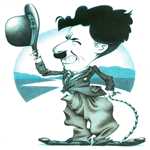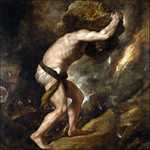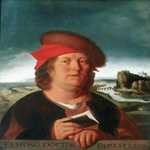- Learn English
-

Learn grammar
-

List of words
-

Study your cards
-

Hang On, Man!
-

Audio Books
-

More apps
- Recent searches
-
uncertain
-
page
-
quiet
-
vas deferens
-
field
-
strait
-
convincing
-
mascot
-
dugouts
-
plaid
- Hide translation

 dramatist
dramatist /ˈdrɑːmətɪst/
dramatist
dramatist /ˈdrɑːmətɪst/
noun
-
(
 )
Someone who writes plays
)
Someone who writes plays  (
dramatist
, playwright
)
(
dramatist
, playwright
)
someone who writes plays
 The gifted playwright wrote thought-provoking plays that resonated with audiences.
The gifted playwright wrote thought-provoking plays that resonated with audiences.
The gifted playwright wrote thought-provoking plays that resonated with audiences.


 impersonation
impersonation /ˌɪmpɝsəˈneɪʃən/
impersonation
impersonation /ˌɪmpɝsəˈneɪʃən/
noun
-
Imitating the mannerisms of another person
 (
impersonation
, personation
)
(
impersonation
, personation
)
imitating the mannerisms of another person
-
Pretending to be another person
 (
impersonation
, imposture
)
(
impersonation
, imposture
)
pretending to be another person
-
A representation of a person that is exaggerated for comic effect
 (
caricature
, imitation
, impersonation
)
(
caricature
, imitation
, impersonation
)
a representation of a person that is exaggerated for comic effect


 Sisyphus
Sisyphus /ˈsɪsɪfəs/
Sisyphus
Sisyphus /ˈsɪsɪfəs/
noun
-
(Greek legend) a king in ancient Greece who offended Zeus and whose punishment was to roll a huge boulder to the top of a steep hill; each time the boulder neared the top it rolled back down and Sisyphus was forced to start again
 (
Sisyphus
)
(
Sisyphus
)
(Greek legend) a king in ancient Greece who offended Zeus and whose punishment was to roll a huge boulder to the top of a steep hill; each time the boulder neared the top it rolled back down and Sisyphus was forced to start again
 The eternal punishment of Sisyphus is a symbol of futile effort and endless repetition.
The eternal punishment of Sisyphus is a symbol of futile effort and endless repetition.
The eternal punishment of Sisyphus is a symbol of futile effort and endless repetition.


 Paracelsus
Paracelsus /ˌpærəˈsɛlsəs/
Paracelsus
Paracelsus /ˌpærəˈsɛlsəs/
noun
-
Swiss physician who introduced treatments of particular illnesses based on his observation and experience; he saw illness as having an external cause (rather than an imbalance of humors) and replaced traditional remedies with chemical remedies (1493-1541)
 (
Paracelsus
, Philippus Aureolus Paracelsus
, Theophrastus Philippus Aureolus Bombastus von Hohenheim
)
(
Paracelsus
, Philippus Aureolus Paracelsus
, Theophrastus Philippus Aureolus Bombastus von Hohenheim
)
Swiss physician who introduced treatments of particular illnesses based on his observation and experience; he saw illness as having an external cause (rather than an imbalance of humors) and replaced traditional remedies with chemical remedies (1493-1541)


